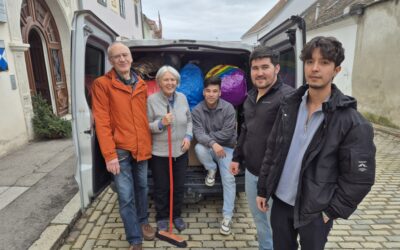 Faith is a fire, the more it grows the more it instructs souls. Those who keep it to themselves risk suffocating it, since it will then lack the oxygen of charity, a virtue that is expansive and not egocentric. We have not done all that needs to be done when we have found faith for ourselves; that is the start of the debt to give it to others. Religion is born in the conscience; but it does not die there. It is born, and it expands beyond the person. Closing it in ourselves, as in a strongbox, means constricting the immensity of God and of love. It is to commit an act of deformation and restriction. What follows is stunted worship, limited to our own measure, jealous of the worship that can be seen in others: a sectarian attempt to kidnap divinity for our personal use. We substitute Jesus who is ours for Jesus who is mine; brotherhood is vivisectioned. We become uncatholic, without realizing it, adopting in practice the principle of everyone for himself and me first, and the solidarity of the Mystical Body disintegrates. Just as if in the human body, a cell or an organ functioned for itself alone, unconnected to others.
Faith is a fire, the more it grows the more it instructs souls. Those who keep it to themselves risk suffocating it, since it will then lack the oxygen of charity, a virtue that is expansive and not egocentric. We have not done all that needs to be done when we have found faith for ourselves; that is the start of the debt to give it to others. Religion is born in the conscience; but it does not die there. It is born, and it expands beyond the person. Closing it in ourselves, as in a strongbox, means constricting the immensity of God and of love. It is to commit an act of deformation and restriction. What follows is stunted worship, limited to our own measure, jealous of the worship that can be seen in others: a sectarian attempt to kidnap divinity for our personal use. We substitute Jesus who is ours for Jesus who is mine; brotherhood is vivisectioned. We become uncatholic, without realizing it, adopting in practice the principle of everyone for himself and me first, and the solidarity of the Mystical Body disintegrates. Just as if in the human body, a cell or an organ functioned for itself alone, unconnected to others.
But – and here lies the strength of our true personality – the person does not live for self. Indeed the person lives the least possible for self and progresses spiritually if living a continuous renunciation of self, because in serving others God is served and in this the self is served. According to the paradox of Christ, those who take most care of themselves, take least care of themselves. The greedy die of fear and starvation. It easier to be saved though others, because the salvation which comes from God abides by the rule of human works, that is, of service to our neighbours, in whom the law of love takes effect, linked as our neighbours are to God not only by faith but also by love which translates into acts. It is a faith demonstrated by facts by which we stand before God not only in a one-to-one relationship, but accompanied by our brothers and sisters, just as every child before its father, with the debt of solidarity.
An urge to reach above conducts this debt to God; an urge to breadth conducts it to humanity. The two urges are not independent of one another, but linked, like the two axes of the cross, which meet in the heart of Christ. The more the one ascends, the more the other is spread wide. The more we love God, the more we seek out other human beings, in each of whom blazes God’s image.
Extract from Igino Giordani, Segno di Contraddizione, 1933 (Città Nuova, Rome, 1964, pp.272-4 and p.321)




0 Comments